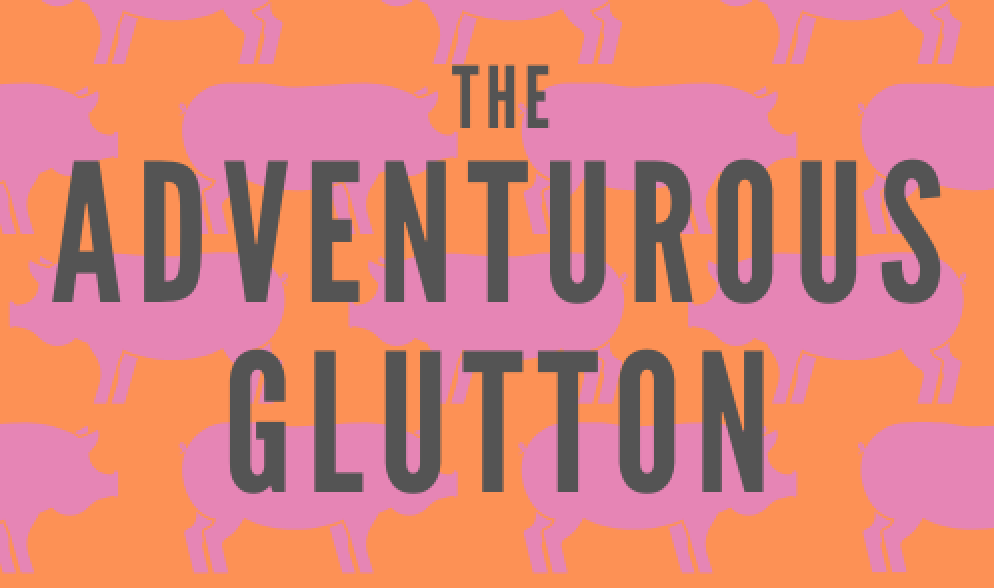Guild of Food Writers' eating insects workshop
Insects are often touted as a fashionable food of the future, but these predictions never amount to much - or certainly not on the scale predicted. But with more people than ever concerned about the damaging environmental impact of global meat production, is this about to change? Will insects really become an everyday ingredient in the West, as they are in many countries? After all, they are a cheap and sustainable source of protein, so why don’t we use them more?
We discussed all these issues and more at The Guild of Food Writers’ workshop and tasting event about eating insects, chaired by Stefan Gates, author of Insects: An edible field guide.
Eating insects is not new to me. I’ve tried all sorts of things on my travels, and when I started this blog back in 2010, there was a lot of crunchy critter eating (crickets, locusts, grasshoppers and mealworms, among other things).
Crunchy crickets for lunch
The earlybirds who booked onto the workshop were sent some insects to try. We received crackers made with cricket flour from Small Giants (which are stocked in Sainsbury’s) and an insect-based meal kit from BUG. Before the workshop, I cooked up the dried crickets with ginger, sesame and teriyaki that BUG supplied. The recipe was simple and tasty - as easy as mixing the sachet of spices (ginger powder, garlic flakes, sesame seeds, chilli flakes, coriander leaves) with the sesame oil and crickets, stir frying for a couple of minutes before adding the teriyaki sauce. I added strips of carrot, green beans, yellow pepper and purple sprouting broccoli, and served with sticky coconut rice. It was really tasty - intense umami flavours, with a lovely crunch from the crickets. It was also incredibly filling, but then I realised I’d polished off a packet intended for two people!
I know some people were squeamish about seeing the whole insect, but if you eat meat or fish, it’s really no different to my mind. As someone who sniffs everything, it was the earthy, musty smell of the crickets when I opened the packet that was more off-putting than their appearance (but I got over it). Crickets are 69% protein, high in fibre, Vitamin B12 and Omega 3 and 6. They contain more iron than spinach, more calcium than milk and more potassium than bananas.
Leo from BUG gave a persuasive introduction to the company he co-founded, and their mission to get people eating insects as a delicious, sustainable superfood. Their driving factor is the environmental destruction caused by the meat industry. Leo said:
The world is burning and our food system is one third of the problem.
Never work with live locusts
Stefan presented a very interesting argument for eating insects, although the live locust Stanley did his best to upstage him. He noted that in the West, eating insects has progressed from being a gimmick and is starting to be taken seriously by people on the nutrition scene (although there is still a long way to go). Here are some fascinating facts about insects that I picked up:
They feed on waste product, such as rotten vegetables.
They multiply easily and use less land.
They don’t burn fuel.
They don’t take any food out of the food chain.
They die in a fairly humane way, as when you put them in the freezer they go into a state of diapause similar to hibernation.
Cochineal bugs (carmine) are still used to colour many foods such as pink marshmallows and Haribo sweets, because it can be called a natural colouring.
In anything that comes from the field - orange juice, biscuits, bread - there will be microscopic fragments of insects. So insects are already in our diet, whether you like it or not!
Cricket crackers
Francesco and Edoardo told us about their company Small Giants. They make three flavours of crackers - Rosemary & Thyme, Tomato & Oregano and Turmeric & Smoked Paprika - with all natural ingredients, including 15% cricket flour. They are being pitched as high-protein, great tasting and sustainable, and two of the flavours have earned a 1-star Great Taste Award.
I tried two of the three flavours. I loved the Rosemary & Thyme - I’d buy them again. The flavour of the Turmeric & Smoked Paprika was a little too subtle for my tastes. Everyone taking part in the tasting agreed that the crackers would be delicious with dips or cheese, but most importantly, a lovely glass of wine!
This workshop was a wonderful introduction to the world of edible insects, so thanks to the Guild for organising, and to presenters Stefan, Leo, Francesco, Edoardo - and not forgetting Stanley the locust!










